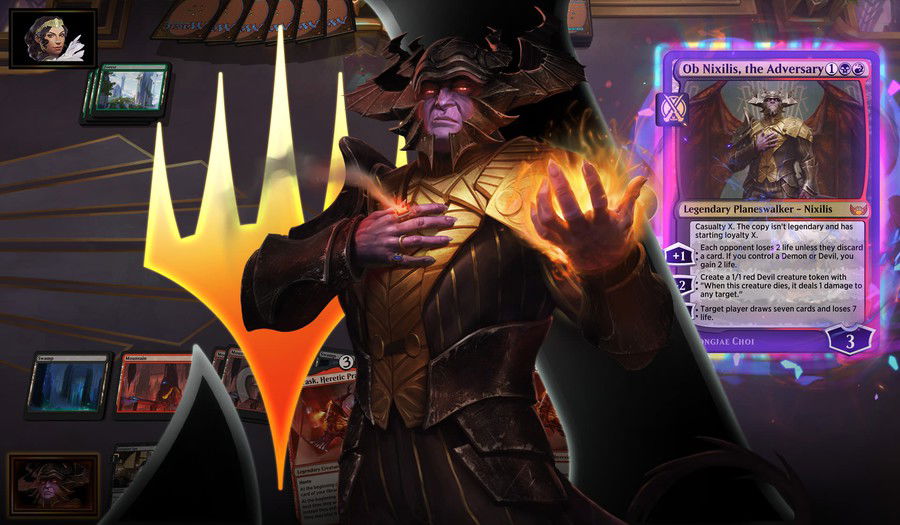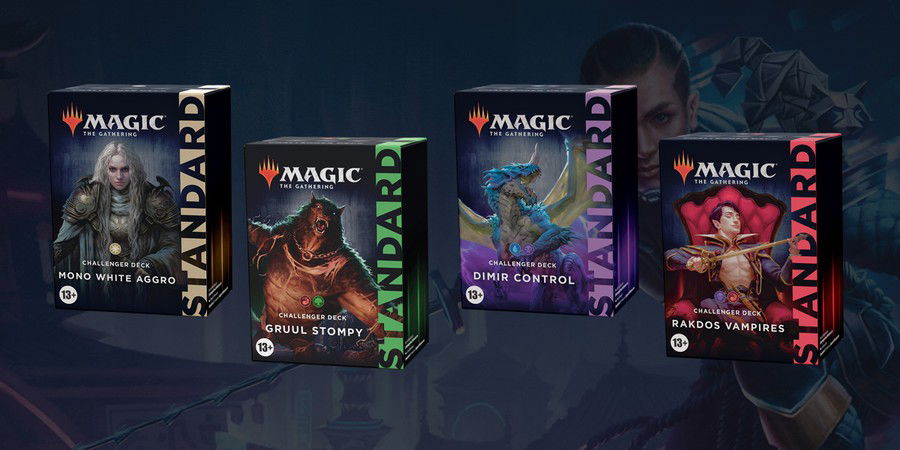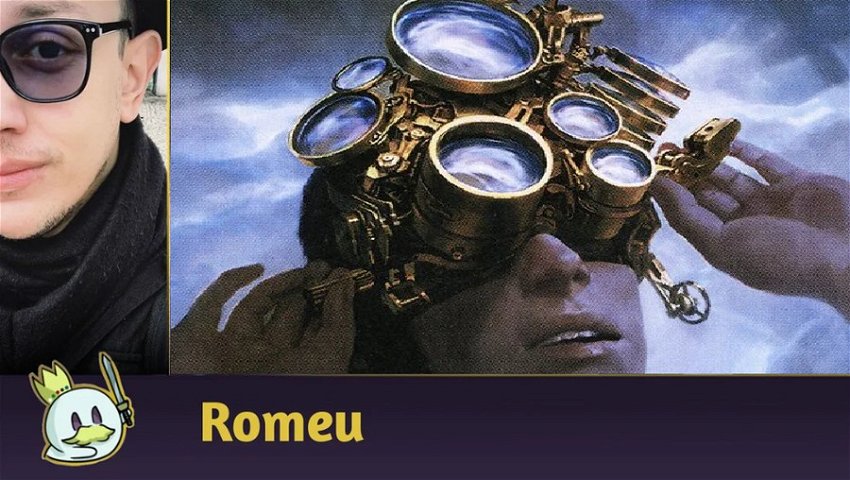During the Top 8 broadcast of the Pro Tour March of the Machine, Wizards of the Coast announced the first in a series of changes to Standard aimed at increasing the format's popularity in tabletop play: the rotation won't happen this year, but in 2024.
Starting this season, all sets will have a three-year longevity in Standard. That is, none of them will cease to be legal when Wilds of Eldraine is released. When rotation takes place next year, only Innistrad: Midnight Hunt, Innistrad: Crimson Vow, Kamigawa: Neon Dynasty and Streets of New Capenna will leave the format, while later sets will remain until 2025.
This change is one of the biggest Standard has seen in years, and in this article, we'll look at its impact and whether it actually has the potential to revitalize the format at in-person events.
Rotating Formats vs. Non-Rotating Formats
Rotation is a historic problem for Standard when it comes to the game's economy. Since I started in Magic, it was common to say that, since it is a rotating format, Standard wasn't financially rewarding for players unless they were very engaged in the competitive scene, since not only did the cards rotate, but every new release brought cards that impacted the Metagame and could even make your deck unfeasible.
On the other hand, the main reason to play Standard was precisely that it was "The main entry point to the competitive environment of the game". Did you want to play a Grand Prix? It would probably be on Standard. Did you want to participate in the Pro Tour Qualifiers? They were almost always in the Standard format. Did you want a cool promo on Friday Night Magic? The tournaments were in Standard.
Despite the demand for constant investment, Standard rewarded players for attending events and, most importantly, for playing well and getting good results. The format opened doors for you, allowed you to participate in some of the biggest competitive Magic tournaments, and there was no need for content creators and/or retailers to promote the format, as it already promoted itself by selling the dream of competitive Magic and professional career.
Also, in other times, there was a huge discrepancy between the availability of recent cards and older cards. In that same period, Standard was the most famous format because its financial investment was much smaller than, for example, investing in a Modern deck. As a result, it was the most famous competitive format in the game.
Today, times have changed. Mainly because the "dream of a professional career" no longer exists, and also due to two "new" formats: Pioneer and Commander. It may seem wrong to place Commander in this category, but its existence has created a new environment in which to play Magic, one that is more social and less competitive, one closer to the casual player and less attractive to those looking for competition.
The support Wizards gave Commander gave it the spotlight it needed to become the most famous format in the game, and become the reference when someone asks "Which format should I start with?".
Pioneer's story is a bit different. It was created as a means of amplifying the longevity of Standard cards when they leave the format, without creating the same discrepancy in time and monetary value that Modern has. The idea was logical: your cards are no longer legal in one format, you migrate to the other and, if you'd like, build a deck with what you have in your collection.
However, two events happened that broke this symmetry between Standard and Pioneer. The first was the pandemic, which ended any in-person play activity around the world for almost two years, leading several Standard players to no longer buy cards. When we can finally go back to our local stores, most of these players' collections are only legal on Pioneer.
The second was the power creep. Many Pioneer/Explorer decks are composed of "Standard cards" + "some older cards". This is because the game's power level has risen considerably recently, and has made strategies that were previously viable in Pioneer be preyed upon by decks made up of more recent pieces of cardboard.

Take Rakdos Midrange, for example: the base of both lists is basically composed of Fable of the Mirror-Breaker, Bloodtithe Harvester, Sheoldred, the Apocalypse and Graveyard Trespasser, with the addition of punctual pieces based on the Metagame and/or their availability in formats.
In theory, this should be excellent, as it allows a person to build a deck in one format and already consider building it in the other. In practice, that same person asks himself why invest X in a Standard deck, when I can invest the same amount in Pioneer and not lose money with the rotation?*.
Standard, somehow, ends up losing by being too strong, to the point where its most important cards impact Pioneer, and create very similar decks or game proposals. And the common economic rationale is that investing in the rotating format yields less return, even more so now that Standard is no longer the main gateway to competitive Magic.
Extending card longevity is a good solution to the investment problem, but it doesn't address the other reasons why Standard isn't what it used to be pre-pandemic.
Magic Arena, Pandemic and the Predatory Pattern
As much as players interpret it that way, claiming that Standard is declining is a misinterpretation of the facts. The format is as active as it's ever been, or even more so than in previous years, just not with physical cards in local stores. After all, it is the flagship of Magic Arena.
The arrival of the new digital platform, in 2018, brought changes in users' perception of Magic, with a portion of new players arriving at stores to look for supplementary products because they played them on their computers. It was common for someone who started in the game through Arena would go to a store, buy a Challenger Deck that fit with the deck they played on digital, and participate in weekly events at a local store, such as FNM, or Standard Showdown.

That changed with the pandemic.
With the entire world locked in their homes to survive the biggest public health catastrophe of the last century, companies needed to adapt their business models to these abnormal times. Luckily, Magic: The Gathering already had two platforms ready for this, with Magic Online (MTGO) and Magic Arena (MTGArena), and saw, at that moment, the best opportunity to promote the digital environment.
The Magic Arena was created to introduce the "Magic: The Gathering" brand to the eSports universe, which ended up going downhill due to a series of factors, including the company's amateurism regarding the digital gaming environment, evident in all the Mythic Championships broadcasts during 2020 and 2021.
However, those years were also the years when Magic Arena was the best, or only, way to play Magic for multiple people, and the need for a competitive environment to keep the public engaged even led to the creation of websites for tournament organizing, with cash prizes for online events - and most of them take place in the Standard format, the most accessible and popular among all the formats available on the platform.
Years passed. Fortunately, the pandemic is no longer a global crisis, and people have been able to get back to the routine of events at local stores and/or with big events taking place in person, such as the Pro Tour.
But Magic Arena remains very popular, many invested time and money to build their collections during the pandemic, and it becomes much more practical to "farm" Drafts to build your decks and play Standard whenever and wherever you want, than to invest more money on cards that will rotate and lose value if there's no good reason for you to head down to your local store and play the format.
In other words, when it comes to Standard play, Magic Arena preys on tabletop Magic. There is no reason, other than a passion for the format, or building a very unified community by the storekeeper, for a player to choose to invest in it over another format. After all, "why would I buy cards in a format that I can play in Arena and still participate and have the opportunity to earn rewards with online tournaments?" is a valid argument.
Therefore, the other problem that Wizards needs to address is how to make Standard attractive so that this same Magic Arena player will have the desire to invest in physical cards and go to a store to play a tabletop tournament. Otherwise, the cycle where you prefer to play in the comfort of your home instead of traveling to a certain region, and still receive good prizes - some even promoted by WotC itself - will remain intact, regardless of the format's longevity.
What does Standard need?
According to the official article itself, increasing the legality of cards in Standard is the first step among the measures that the company is taking to make the format more attractive in local stores. Therefore, we can expect other changes during 2023 and, perhaps, in 2024.
Within my experience with the format, and with Magic as a whole, I believe there are some points that require practical solutions to increase its popularity among players.
Give people reasons to play Standard
It's not enough to just say "we've increased the longevity of the cards, now do the events". Wizards needs to ensure that Standard is attractive to both players and retailers, and that's not the case today.

While we have a program that rewards players for attending FNMs, Store Championships, playing RCQs, and other events, none of these are directly tied to Standard, except for an RCQ season. Therefore, most players who attend tournaments aren't as interested in competing in this format.
Perhaps, recreating the Standard Showdown program, this time with promos that really matter and symbolize that they were designed for a Standard event, would have a much more attractive effect than just a few boosters of three or four random cards.
Another option would be to reinforce the need to play Standard for the RCQs seasons, as it used to happen in the past. This would make players interested in the game's competitive environment need to invest in decks in the format if they plan to participate in a Pro Tour.
However, this possibility makes things a bit worse for a player. Of course, everyone who goes on the Pro Tour has, in some way, the monetary benefit of being able to invest in tickets, accommodation, food, and other costs to participate.
So, starting with a Standard deck to qualify increases players' entry point into the competitive environment, and when you're qualified, if you intend on participating in the Pro Tour, you're likely to get support from other players to build a deck that fits the main event's format.
For example, playing a Standard RCQ and Regional Championship, qualifying for the Pro Tour playing Standard, and then needing to look for and practice a Modern deck is dissonant. Especially for that same player who, thanks to the changes that could occur in the Regional Championship system, managed to enter the competitive environment. All of a sudden, would have to go after a specific deck, in a format they may never have played.
In addition, there is a need to increase Standard's popularity in the in-person game, and this needs to be worked on at the base, in local stores, motivating their regulars to participate in the format's tournaments. Making it the norm format for RCQs would make it attractive to the most engaged portion of the competitive environment, but those are a minority of Magic's audience, and while it helped move the format into local stores as "training grounds," this change it wouldn't help the casual player feel comfortable experimenting with the format and participating in these events.
Manage the format's diversity
Timing is a critical element of business communication. Wizards is not a good example of this. It's not enough just to say "we increased the longevity of the cards" when the format is hegemonic around the same cards since the beginning of the current season - this same season that will now last for another year.

The cards above have been at the top of Standard since the past rotation, and absolutely nothing has taken them out of there. In non-rotating formats, we could say that this is natural, and the Metagame does, in fact, have the best decks and the ones that try to catch up with them. The same logic doesn't quite apply to Standard.
Because of the low card diversity, a healthy Metagame in Standard is one where there are a few best decks, and they compete against each other for the top position during each week, forming a "rock-paper-scissors" spectrum between them, with punctual changes occurring in their lists or even a new archetype emerging to take over the "best deck of the week", forming a diverse environment where, despite being a little above the others, it doesn't create hegemony over the others.
That is not the case for the current season. Rakdos has been, for most weeks since the last rotation, the best deck in the format. Archetypes in the 
So, this is not a format that we can call diversified and that players would want to stick with for another year. This creates a delicate situation where, on the one hand, Wizards should act with a direct intervention to amplify the diversity of the Metagame. On the other hand, the company needs to be more careful about bans so as not to "kill entire decks" and make players feel that their investment was a waste of time and money.

The case of Rakdos Midrange, today, is an anomaly in these situations: its core is so good that it created its own variant in Pioneer, which is also the current best deck in the format. That, by itself, should already make it clear that it is at a higher power level than the rest, and it would not be so harmful for players if a ban occurs on one, or two, of their main cards since the "migration tax" of this list for Pioneer is much smaller than if it were a strategy that only works on Standard.
If Wizards wants players to engage with the format in their stores, they need to make their environment attractive and diverse without making it unsafe to invest in. This means managing Standard's health as needed, firmly enough to ban what needs to be banned, but surgically as well, without creating situations where entire decks have to be killed, or where cards leave the format unnecessarily.
Give more product options for Standard
And by more products, I mean more Challenger Decks and other items in the same category, since they are the perfect entry point into the format.

There is more interest in playing tabletop when one doesn't have to chase so many cards to participate in a tournament. Having "ready to play" products is a proposition that works great for Commander, and could work for Standard in stores that host local events.
Increasing the production and diversity of Challenger Decks and making them available on a semi-annual basis would give the casual player an opportunity to experiment with the format, especially if they are as well-constructed as some of the more recent lists have been, without the need for them to be the most optimized lists, but also without weakening them to the point of making them bad or suboptimal.
The increase in Challenger Deck production could also help Standard with another oft-cited issue: pricing. Having more chances of reprinting key pieces like one-ofs or two-ofs in certain lists would help to increase the availability of these cards in the market, which would lower their price during a period and help that same player interested in the box with the deck to optimize their decklist.
But what about Magic Arena?
I think it's already clear to a portion of the community that Magic Arena is treated as a separate product, with a different audience of players. No change that will be made by Wizards will pass by making the digital platform less attractive for the player, but in making Standard more interesting on the tabletop.
Therefore, I don't believe that any change will happen in Magic Arena that will harm the interest of the format's players in the platform, and every action taken by Wizards must go through its treatment in relation to local stores, event organization and products availability.
The only difference that would make any sense would be to integrate some part of the physical game and the digital environment. For example, the inclusion of codes in Booster Packs could serve as an attraction for players to buy more boxes and, consequently, acquire more cards to build their physical decks as well.
However, this is a measure that, in practical terms, would potentially make Wizards lose money by taking away the main advantage of selling digital Boosters in Magic Arena. Therefore, this measure seems too unlikely to be considered.
Conclusion
That's all for today.
In a general context, the expansion of Standard looks positive for the format, including those who play in Magic Arena, as they give one more year of validity to their investment in digital boosters.
For tabletop, this measure is an excellent first step, but it needs to be added to other points that Wizards needs to adhere to if it wants to amplify the format's popularity, such as greater support for local stores, increased availability of "ready to play" products, and an effective management of the Metagame's health.
Thanks for reading!














— Comentarios 0
, Reacciones 1
Se el primero en comentar